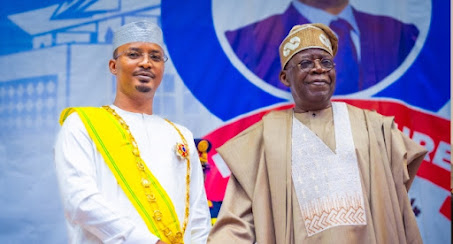Gov Yusuf Assents To Bill Reversing Creation Of Kano Emirates Created By Ganduje
The governor also reinstated the 14th Emir of Kano, Muhammadu Sanusi II, who was earlier deposed in March 2020.
Kano State Governor, Abba Yusuf, has assented to the bill earlier passed on Thursday by the state assembly which reversed the creation of new emirates by the then Governor Abdullahi Ganduje administration.
The governor assented to the bill on Thursday after a closed-door meeting with the members of the state assembly and some traditional leaders believed to be kingmakers at the Government House in Kano.
Yusuf also reinstated the 14th Emir of Kano, Muhammadu Sanusi II, who was earlier deposed in March 2020. With the governor’s proclamation, Emir Aminu Ado Bayero, who initially succeed Sanusi, has been removed.
Emir Ado Bayero was said to be currently out of town after he paid a courtesy call on Oba Sikiru Adetona, Awujale of Ijebuland, on Wednesday.
Sanusi, a former governor of the Central Bank of Nigeria (CBN), was appointed as the 14th Emir of Kano in June 2014 by the administration of former governor Rabiu Kwankwaso, with Ganduje as deputy governor of the state before the latter eventually became governor in May 2015.
As Kano emir, Sanusi fell out with the Ganduje administration over his outspoken nature.
He was deposed in March 2020 after the Kano State Emirs (Appointment and Deposition) Law was promulgated by the Ganduje administration in 2019, and four additional emirates were created – Rano, Karaye, Gaya, Bichi.
The then state government said he was removed “to safeguard the sanctity, culture, tradition, religion and prestige of the Kano emirate,” accusing the emir of “total disrespect” of institutions and the governor’s office.
But Sanusi’s supporters believed he was ousted for opposing Ganduje’s re-election in 2019.
Upon securing a second term mandate, Ganduje split the Kano emirate into five and appointed four more emirs – to weaken Sanusi’s influence.
Five years after his controversial removal as emir, the Kano State House of Assembly resolved to amend the law after Majority Leader Hussien Dala moved the motion during plenary.
“The need to revisit the Emirs Law has become imperative to address the issues that have arisen from the 2019 amendment. We must ensure that our traditional institutions are governed by laws that reflect fairness and justice,” Dala said.
On his part, the Speaker of the Kano House of Assembly, Jibril Isma’il Falgore, promised to ensure that the process of amendment follows due process and transparency.
The law that booted Sanusi from office is known as the Kano State Emirs (Appointment and Deposition) Law. It was promulgated in 2019 by the Ganduje administration after having a running battle with the deposed emir.
Now, the parliament is controlled by the opposition New Nigeria Peoples Party (NNPP).
Earlier, NNPP 2023 presidential candidate (Kwankwaso) pledged that the issue of Sanusi’s sack would be revisited. Kwankwaso, the political mentor of the current governor, controls Kano, the north-western state known for its huge voting population.







